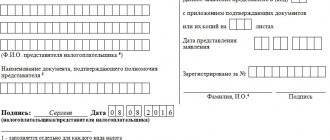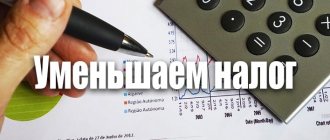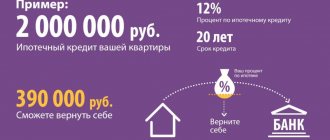Features of taxation
Among the important objectives of this legislative act were the following:
- fight against corruption;
- increasing contributions to the state budget;
- regulation of financial flows within the country, directing them to support the real economic sector.
The tax program affecting luxury items consists of 2 parts:
- 1 – applies to owners of expensive vehicles;
- 2 – affects property owners.
Many experts note the main feature of this taxation - it concerns almost the entire population of Russia, acting as an additional tax on land and property.
Until 2020, the tax on a property was determined taking into account its inventory assessment. Today, one more value has been added to these indicators:
- Cadastral value.
Therefore, even a run-down apartment can become a luxury if it is located in a good location, for example, in the central areas of the city.
In 2020, certain amendments were made to the Tax Code of the Russian Federation regarding the calculation of tax on real estate. The goal of the reform is to gradually increase the tax to 20% annually, the duration of this tax program is 5 years. Reduction coefficients should limit the growth of tax payments. This five-year time period is intended to ensure a smooth change in taxation - according to various experts, the value of the cadastral value exceeds the inventory value by 10 times.
There is already a luxury tax in Russia
The Chamber of Commerce and Industry (CCI) also developed its own version. After the panel discussion ended, the RG observer interviewed a forum participant, deputy chairman of the Chamber of Commerce and Industry’s Expert Council for improving tax legislation, Dmitry Fadeev.
Dmitry Evgenievich, the Chamber of Commerce and Industry recently submitted proposals to the Ministry of Finance in the “Main Directions of Tax Policy 2015-2017”. Which of them, based on the results of the discussion, can be included in this document?
Dmitry Fadeev:
Hard to tell. To be honest, I expected more clarity from the Ministry of Finance. But the head of the relevant department did not give us clear guidelines at the forum.
There is a feeling that they want to give entrepreneurs a surprise. Businesses today have a standard wish - a predictable tax policy, which was discussed a lot by other forum speakers. In 2013 alone, 24 major amendments were made to the Tax Code. And, of course, in the conditions of leapfrog in the tax field, it is very difficult for a business to plan its activities 2-3 years in advance.
What are the reasons for suspicions about “unpleasant surprises”?
Dmitry Fadeev:
It is worrying that the preparation of the document at this stage is proceeding without wide and public discussion. But the devil, as we know, is in the details. It is very worrying what, for example, they will write in bills on deoffshorization. But many new concepts are being introduced into the Tax Code - “foreign controlled companies, beneficial recipient of income, tax residence of corporations.” Tax matter is a very delicate thing. It happens that the meaning of some interpretations expands, hence the unpleasant surprises. And the sooner business gets involved in the discussion process, the better.
Why are innovations concerning deoffshorization disturbing?
Dmitry Fadeev:
Capital flight is not good. However, according to surveys of entrepreneurs that we conducted at the end of 2013, in Russia the main reason for using offshore companies is the protection of property and confidentiality of business ownership, and not tax optimization. Offshores, in our opinion, are two-way bridges, that is, to say that they are one hundred percent evil and to abandon them is probably wrong for our economy. And that means we need to maintain a balance. That is, to stimulate investment, not to scare off potential investors, to be guided, as in medicine, by the principle of “do no harm.”
What could be an alternative to offshore companies in this case?
Dmitry Fadeev:
Special economic zones are clearly not an equivalent substitute yet. It would be useful to introduce the concept of “trust” and adopt a law on holdings and project financing.
Is the problem of parallel fees, which was voiced by Mr. Pepelyaev and which, bypassing the Tax Code, expands the fiscal burden, really acute?
Dmitry Fadeev:
Yes, we also deal with these sort of fiscal payments at the Chamber of Commerce and Industry. Now a working group has been created in the Federation Council and a concept for a draft law on non-tax payments has been prepared. They will eventually be systematized and introduced into the Tax Code. In this case, any taxpayer will be able to open the Code and, along with 13 types of taxes, see all other types of non-tax payments. In this case, everyone will understand what amounts and in what volumes they must pay to the budget.
During the discussion, we talked about the growing competition between countries for entrepreneurs-taxpayers and for the tax base. You propose to harmonize tax legislation in the Customs Union. How? Politically, is this a task for the distant future?
Dmitry Fadeev:
In 2012-2013, about 5.5 thousand Russian legal entities re-registered in Kazakhstan, where the insurance premium rate is 11 percent, but, however, tax administration is the strictest among the CIS countries. That is, 99.9 percent of tax disputes and audits end in favor of the tax authorities.
For Russia, of course, it is important not to scare away business and investors. And in addition to prohibitive measures, do not forget about stimulating entrepreneurial activity. We must not be afraid to borrow the progressive experience of our neighbors - the Tax Code of Kazakhstan has a section “tax risk management”, which specifies 12 criteria for assigning on-site tax audits. In our country, this issue is regulated by an order of the Federal Tax Service of Russia, and not by law, which, in my opinion, is not correct.
What else?
Dmitry Fadeev:
Traditionally, we advocate the return of investment benefits on the profits of organizations, which existed and made it possible to develop production. We are supported in this by the Russian Union of Industrialists and Entrepreneurs and the Ministry of Economic Development. But not the Ministry of Finance, which treats this as an unaffordable luxury, which is understandable given the budget deficit.
One could, for example, propose to put on the scales the currently existing 30 percent depreciation bonus, various coefficients and an investment incentive. Understand the economic effect of them and make the right decision. The task for everyone is the same - to find the right tax model before 2020 in these difficult conditions, without compromising the social sphere and pensions.
Do you think it is necessary to stop talking about the return of a progressive scale for personal income tax?
Dmitry Fadeev:
Personally, I am in favor of grading taxes. But it is unlikely that this topic will be taken into account in the main directions until 2017. Meanwhile, according to the theory of tax law, taxes have a stimulating, fiscal and social function. Here, unlike other countries, they forgot about the social function, as if it didn’t exist. But people who receive a large salary must pay more taxes on it, and those who receive a smaller salary must pay less.
Your colleagues from Delovaya Rossiya propose to introduce a consumption tax, but in return reduce taxes for manufacturing companies. How do you like this?
Dmitry Fadeev:
In fact, Russia already has a luxury tax. It was introduced this year for cars worth over 3 million rubles. Starting from 2017, a unified real estate tax will be introduced. But here, too, the system of deductions will be important. For example, a man built a nice house for his old age, saved for it all his life, but he himself does not belong to the “top” category. In this case, why choke him with a consumption tax? And here, too, balance is important.
Main provisions of the tax program
The luxury tax is considered an additional fee of the state; its payment occurs under certain conditions indicating a specific level of income of a category of people.
The tax rate is determined by establishing a multiplying coefficient, in all regions - individually.
There are also norms adopted by federal legislation that limit local government structures in increasing the established coefficient values:
- Minimum – 0.1% of the cadastral valuation;
- Maximum – 1.5% of the cadastral price.
Real estate objects
Tax amounts are calculated on the following property:
- Various plots of land.
- Real estate classified as residential/non-residential.
- Housing under construction.
The above real estate options are characterized by their market, cadastral valuation; it is calculated taking into account the results of professional appraisers; various factors influence it.
A property owner who does not carry out the necessary revaluation in accordance with the rules introduced by law may subsequently significantly overpay tax amounts.
Luxury real estate tax in 2020
It is logical to conclude that the tax on luxury real estate within the same locality will not be the same. It increases proportionally as objects move closer to the center or are located in prestigious areas. The city status is also reflected in the amount of such tax.
The luxury tax on a home must be paid if the total cost of buildings in the local area and adjacent land is more than 300 million rubles. An apartment is classified as luxury if its area exceeds 200 square meters. m, and the cost is 30 million rubles.
We recommend reading: Personal Income Tax Deduction for 3 Children in 2020
Cadastral value
This category is a certain indicator - the actual cost of the property. It is established during professional inspections, taking into account the following points:
- Changes of a capital nature after extreme revaluation, for example due to repairs;
- Depreciation of real estate of a physical, natural nature;
- Deterioration of the surrounding space of a natural, physical nature, affecting the condition of the immovable object (for example, the land on which the house was built);
- Various other factors that can influence the value of the property (presence of hazardous enterprises near it, whether the necessary infrastructure is available).
Regional characteristics play an important role - in the city center the cost of housing will be higher than in remote areas (for example, in the region). In Moscow, real estate costs more than in other cities of the Russian Federation.
Luxury tax 2020: a real estate issue
No reporting will be required under the new special regime. Thus, in particular, reporting on income received as part of the application of the NAP is not provided. But a reasonable question arises: how then will tax authorities control the amount of income received? Apparently, tax authorities will rely only on income information that a person himself entered into the “My Tax” application.
- Disabled people of WWII, various combat operations;
- Heroes of the Russian Federation/USSR, full holders of the Order of Glory;
- Laureates of Russian state awards in various fields (science, technology, art, literature, etc.), Nobel Prize.
Tax objectivity
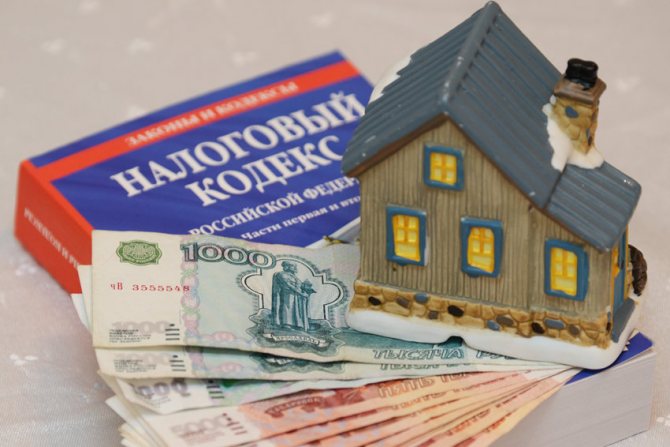
Many citizens do not agree with this bill - the market value of real estate is increasing every year, people could buy an apartment in the economy segment 10-15 years ago, but today its value will increase. For example, buying a one-room apartment 10 years ago for 700 thousand rubles. – currently its market value will be at least 1 million rubles.
The essence of the luxury real estate tax: nuances and concepts
You can consider a specific situation. Buying a one-room apartment for 700 thousand rubles ten years ago, now the owner is forced to put up with a market value of 1 million rubles. And since the formation of the tax is influenced by the increasing coefficient, which depends on the cadastral value, it is necessary to consider some features.
As the market value of real estate increases from year to year, it should be understood that ordinary citizens who purchased real estate in the low price segment ten years ago are now faced with the need to pay a luxury tax only because of the increase in the overall cost.
Tax exemption options
Certain immovable properties are not subject to the fee:
- Facilities financed from the state budget.
- Family-type orphanages.
- Dormitories.
- MAFAS, non-residential buildings in markets.
- Residential/non-residential buildings in the resettlement zone.
- Residential/non-residential real estate in the exclusion zone.
- The property is residential but uninhabitable.
- Real estate owned by orphans.
- Residential property owned by children without parental care.
- Real estate owned by disabled children raised by only one parent, for example, by mothers - no more than one dwelling.
According to the law, the following categories of people are recognized as taxpayers:
- Organizations;
- Individual entrepreneurs;
- Individuals who own a taxable object from the list specified in Article 333.44 of the Tax Code of the Russian Federation.
The following citizens are not recognized as taxpayers:
- Disabled people of WWII, various combat operations;
- Heroes of the Russian Federation/USSR, full holders of the Order of Glory;
- Laureates of Russian state awards in various fields (science, technology, art, literature, etc.), Nobel Prize.
Luxury tax: vehicles
In 2015-2017, the new tax system for luxury and prestigious consumption particularly affected vehicles:
- cars with a price of 3-20 million rubles. (the rate varies, depending on the cost, year of manufacture);
- sea/river transport (boats, yachts and other means, the tax is 10% of the cost of living, with the exception of ordinary and high-speed boats with a hull length of up to 6 m);
- aircraft (taxed at a rate of 10% of the subsistence level, no benefits are provided).
Attention: There is no single, unchanging list of vehicles; it is revised on March 1 every year; for example, in 2020, an additional 90 vehicles were included in it. The total number of positions is 279 and will continue to grow.
Features and calculations
When calculating the 2020 Luxury Tax - Cars, you need to remember that the payment is not separate, but acts as a rate multiplied by the transport tax. Information for calculation can be obtained from the representative office of the vehicle manufacturer or from a catalog with recommended prices. The average cost is also calculated annually by the Ministry of Industry and Trade.
Attention: The average set price may differ from the actual price paid for the vehicle!
When independently calculating luxury tax 2020, the list of cars is divided into the following groups:
- at a price of 3-5 million rubles. (year of manufacture up to 3 years ago) coefficient is 1.1;
- at a price of 3-5 million (year of manufacture no more than 2 years ago) the rate is 1.3;
- for cars whose cost is 3-5 million and produced no later than one year, the coefficient is set at 1.5;
- rate 2 is used for 5-year-old cars with a price of 5-10 million;
- coefficient 3 - for ten-year-old vehicles with a price of 10-15 million and for twenty-year-old vehicles worth 15 million or more.
To calculate, you need to multiply the amount of the transport fee by a coefficient corresponding to the cost and year of manufacture of the vehicle.
Who is exempt from tax and are there ways to get around the innovation?
According to accepted norms, the rate is charged on new and used cars, so all vehicle owners are advised to check annually whether their cars are on the updated list. But some categories are still exempt from payments:
- disabled people (applies to all degrees);
- WWII veterans;
- participants in any hostilities;
- heroes of the Russian Federation, USSR;
- parents with many children.
Is it possible to avoid payments? Here are some tips to get around the new luxury tax:
- file a report of the theft of a car (no payment will be charged as long as the car is wanted);
- A vehicle can be converted for special use by citizens with disabilities, that is, people with disabilities (confirmation of such conversion is required);
- The car can be registered to any organization taking part in the preparations for the 2020 FIFA World Cup.
Tax calculation
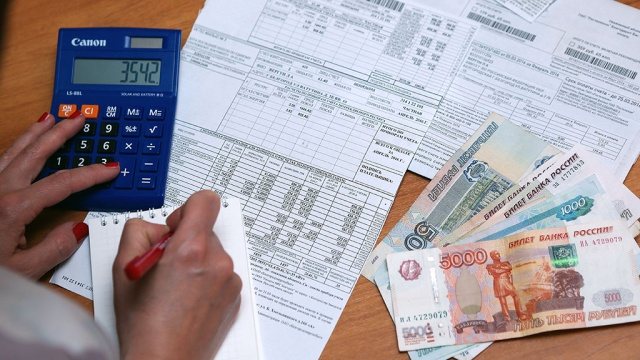
The scheme for calculating the tax amount is based on the following provisions:
- If the cadastral value of real estate does not exceed the limit adopted by law, then the tax coefficient is 0.1%;
- Office premises, tax centers, industrial buildings - the rate will be 0.5%;
- Agricultural land, plots of personal subsidiary plots - tax coefficient 0.3%;
- Other land plots – 1.5%.
A deliberate reduction in the price of real estate is not possible - all information is checked in Rosreestr, and tax is collected without fail.
In addition, legislative acts indicate:
- Luxury housing is apartments with an area of more than 200 square meters, the price is over 30 million rubles;
- Real estate with a value of more than 300 million rubles. is recognized as a luxury object, the tax amount on it is determined in the amount of 2% of the cadastral value of this housing.
Luxury tax on real estate
From what area is the luxury home tax calculated? From 500 square meters per person worth 50 million rubles. This also includes land plots of more than 50 hectares and a price of ten million. The amount for a plot consists of three values - cadastral, inventory and market value. The rate may vary depending on the region and the coefficients adopted there ; it varies from 0.1 to 1.5 percent of the cadastral price of the plot.
Luxury apartment tax. Apartments with an area of 150 square meters per person and costing from fifteen million rubles are considered extremely profitable. The owner, owning an apartment for thirty million, will pay three hundred thousand a year at a rate of 1 percent.
Objects of unfinished construction of houses and apartments are paid at a rate of 0.1 percent of the cadastral value.
All listed objects are recorded in the tax return filled out by an individual annually. The Tax Inspectorate reconciles data in Rosreestr and the State Traffic Inspectorate and generates notices of payment of contributions.
Results of this tax program
Changes in real estate taxation will affect a large number of people.
The real price (market value) of a real estate property in a certain region comes to the fore. For example, the price per square meter in Moscow is 170 thousand rubles, in other cities of the Russian Federation it varies from 35-40 thousand rubles. Consequently, an ordinary apartment in Moscow will cost at least 9 million rubles; it will be able to move into the category of “luxury housing” in the region. Innovations in the field of taxation concern residential properties, commercial real estate, including unfinished objects, land, and buildings. The calculation scheme is quite simple, individual for a certain type of housing.
But this tax program does not take into account the following:
- People living in the capital and various large cities of the Russian Federation will be required to pay higher for their real estate than the rest of the population living in the periphery. For example, the tax amount for Moscow residents will be 5-6 times higher than for people living in the neighboring region.
This tax is also not pleasant for those who prefer to invest money in purchasing housing in new buildings for their further rental. If the sum of the entire property area (in square meters) is greater than the established norm, then, consequently, tax payments will increase. In such a situation, the profit of people engaged in this type of activity will be reduced to a minimum.
Owners of suburban real estate will be in a more advantageous position - 20 square meters, which are not subject to tax, will be deducted from the total total real estate area. If the area of the property is identical (or less) to the preferential square footage, its owners are not subject to taxation.
Luxury real estate tax 2020 online calculator
Changes in real estate taxation will affect a large number of people. The real price (market value) of a real estate property in a certain region comes to the fore. For example, the price per square meter in Moscow is 170 thousand rubles, in other cities
Income tax in 2020 in the Republic of Belarus Road tax calculator 2020: we think correctly News, analytics, forecasts and other materials published on this site are not reliable and do not call for anything.
Odds valid in Moscow
| Real estate | Tax rate |
| Housing with a cadastral value of less than 10 million rubles. | 0.1 |
| Housing with a cadastral value of 10-20 million rubles. | 0.15 |
| Housing with a cadastral value of 20-50 million rubles. | 0.2 |
| Housing with a cadastral value of 50-300 million rubles. | 0.3 |
| Housing with a cadastral value of over 300 million rubles. | 2 |
| Garages | 0.1 |
| Construction in progress | 0.3 |
| Commercial buildings | 2 |
| Administrative buildings | 2 |
Changes to the tax program in 2020
Previously, as a result of purchasing a two-room housing in the city in the central lands, a resident paid 500 rubles to the budget. tax, upon completion of the new reform, the tax amount will increase to 5 thousand rubles. annually (even more). The basis of taxation will be the cadastral value (and not the inventory value), which can bring real estate as close as possible to its market price.
Dimensional parameters of the tax amount are 0.1-2% of the cadastral valuation. This taxation is not uniform for owners of different real estate options; it will be updated over a period of 5 years, taking into account research by independent experts.
This fee applies to the following categories of citizen-owners:
- Unfinished housing (residential);
- Garages, parking spaces;
- Rooms, apartments, other housing;
- Centers containing at least 1 residential premises;
- Domestic buildings up to 50 square meters located on land where dacha work and gardening activities are carried out.
In addition, property owners will be required to provide tax officials with accurate information about the property they own. Otherwise (in a situation of data falsification, etc.) they face penalties of 20% of the tax amount. The list of preferential categories of citizens will remain the same in 2020, there will be no changes in it.
Luxury tax on apartments and houses in 2020
The Ministry of Finance included apartments priced at more than 300,000,000 rubles in the list of luxury items. This also includes an area that exceeds 300 square meters. Such property is subject to a tax rate of 2%. Owners of apartments worth up to 10,000,000 rubles pay a tax of 0.1%, from 10,000,000 to 20,000,000 - 0.15%, from 20,000,000 to 50,000,000 - 0.2%, from 50,000,000 to 300,000,000 - 0.3 % . For all other real estate objects, the tax should not be higher than 0.5%.
Now we will introduce you to the intricacies of the tax system in the Russian Federation, which concerns expensive apartments and mansions. Earlier, in the television program “Posner”, which is shown on Channel One, Anton Siluanov announced information about the likelihood of introducing a high tax on “rich” property. Currently, this official holds the post of head of the Ministry of Finance of the Russian Federation.
We recommend reading: Unified Internal Revenue For LLC In 2020 Calculation
